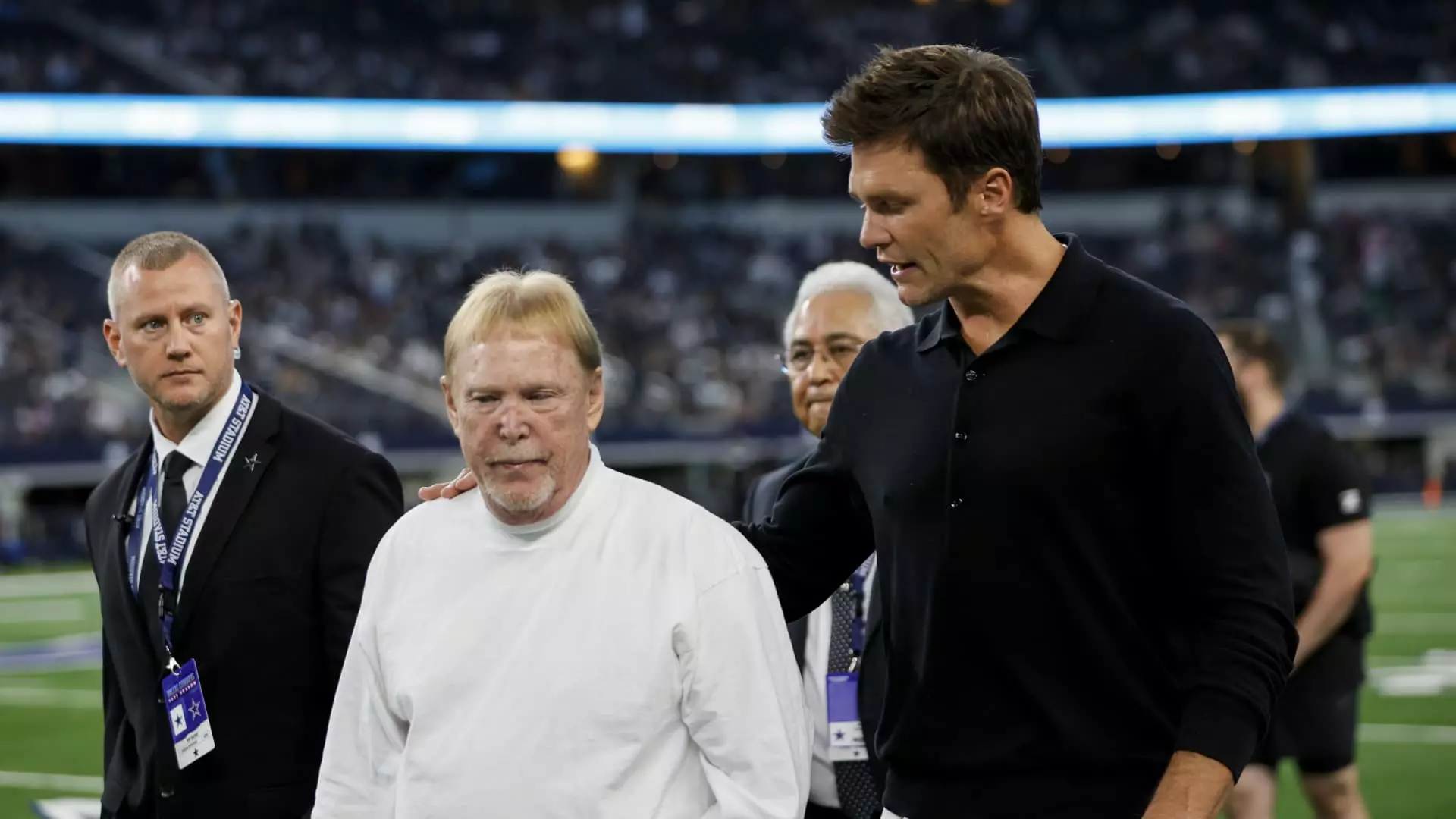The National Football League (NFL) recently witnessed a significant development as owners unanimously approved Tom Brady’s entry as a minority owner of the Las Vegas Raiders. This landmark decision reflects ongoing shifts within the league, merging the realms of sports, business, and celebrity in unique ways. Brady, a renowned seven-time Super Bowl champion, has made a strategic move into NFL ownership, which marks an intriguing chapter in his post-playing career.
Brady acquired around a 10% stake in the Raiders in partnership with Tom Wagner, founder of Knighthead Capital. The precise financial details regarding the investment remain undisclosed. However, the Raiders are currently valued at an impressive $7.8 billion, making them the fifth-most valuable franchise in the NFL according to CNBC’s official team valuations for 2024. This valuation skyrocketed following the team’s relocation from Oakland to Las Vegas in 2020, revealing a pivotal trend in sports franchising where location plays a crucial role in maximizing revenue and brand value.
The rise in the Raiders’ worth can also be ascribed to the immense revenue growth the team has experienced post-relocation. In 2023, the Raiders reported an astonishing revenue figure of $780 million, ranking third in the league. This financial surge is particularly noteworthy given that it comes despite Allegiant Stadium being one of the smaller venues in the NFL, accommodating only 65,000 spectators. The Raiders have responded to this limitation by implementing the highest ticket prices in the league, with an average ticket costing $169. This model underscores a growing trend where franchises capitalize on premium pricing strategies to enhance profitability in modern sports.
While Brady’s transition from star quarterback to team owner could appear seamless, it’s important to note the restrictions accompanying his new role. Upon his entry into ownership, he will face several limitations, including restrictions on direct interaction with players, coaches, and access to team facilities. Moreover, his broadcasting commitments with Fox Sports complicate his ability to cover Raiders games in the same way as a traditional owner. For instance, although he can broadcast games, he is prohibited from attending production meetings. This dual role will undoubtedly lead to a unique set of challenges as Brady navigates the balancing act of ownership and media responsibilities.
Additionally, Brady’s ownership status comes with guidelines preventing him from publicly criticizing officiating or other teams—a critical protocol in maintaining the integrity and respect among NFL franchises. These restrictions underscore a broader ethos within the league, emphasizing the importance of unity and professionalism among team owners and officials.
Brady’s ownership marks him as only the third former NFL player to embark on this path, exemplifying a trend of athletes evolving into business leaders. This progression signals a transformative era where former players leverage their fame and experience to contribute to the sport’s governance and profitability in more meaningful ways. Brady is not just stepping into the business side of football; he is setting a precedent for other athletes who aspire to be involved in broader management roles post-career.
Moreover, his existing influence extends beyond football; Brady is a minority stakeholder in the Women’s National Basketball Association’s Las Vegas Aces. His involvement in both franchises reveals a broader strategy of diversifying his investment portfolio, aligning with trends where successful athletes explore opportunities across various sports.
As Brady embarks on this ownership journey, the future of the Raiders appears promising. The infusion of capital and business acumen he brings could facilitate further growth, not only in terms of profitability but also in enhancing the overall fan experience. With the potential for more social media engagement and innovative promotional activities, the Raiders look poised to solidify their place within the league as a top-tier franchise.
In closing, Tom Brady’s entry into the NFL ownership sphere with the Las Vegas Raiders is a notable event that reshapes the conventional views of athlete retirement. His legacy as one of the game’s greatest players now extends into the business domain, positioning him as a significant figure in the evolving landscape of professional sports ownership. The implications of his involvement will undoubtedly reverberate throughout the league, setting benchmarks for future athlete-owners.


Leave a Reply